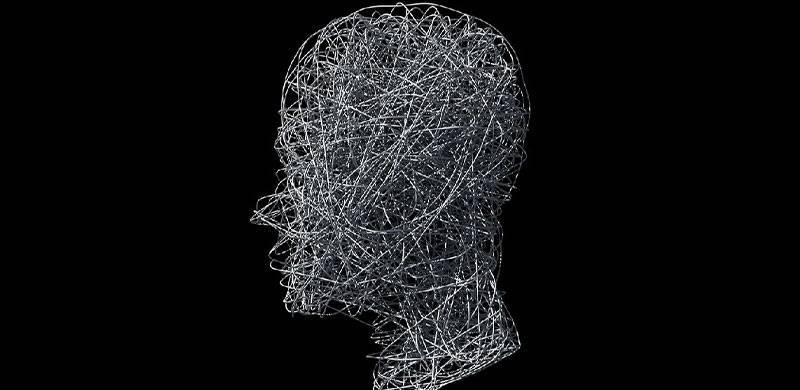
Reading the news about Kabir Bedi’s son (an Indian actor) and his son’s battle with schizophrenia which eventually ended in suicide was deeply jarring and disturbing, to say the least. Apparently, he was extremely intelligent but due to his mental health issues, eventually ended his life. Obviously, for the family, living with an individual with acute mental health issues takes a toll on their physical, mental, and emotional health.
Losing a child to suicide is possibly the worst ordeal (and that is an understatement) a parent can go through. In addition, due to the stigma around mental health issues, so many of us suffer in silence, too scared to say anything. While life comes tumbling around us like a ton of bricks and becomes hellish both for the patient and the close family members, the societal pressures and the fear of the stigma attached to it prevent individuals from seeking professional help. While many mental health issues can be controlled, there are also quite a few that can be managed with drugs and therapy, thereby enabling the patient to enjoy a certain quality of life, which they might not be able to do otherwise.
However, there are quite a few individuals in this society who believe that the answer to every problem lies in religion. A non-believer in psychiatrists and medication, the best therapy, in their view, is communing with God. While the writer fully agrees and believes that God is beneficent and merciful and can wreak miracles, that cannot be a substitute for therapy and medication. This is rather a controversial topic and at the risk of stirring a hornet’s nest, things have to be looked at in the right perspective. The trio of medication, therapy, and religion all work together to bring about a change but believing that one can be a substitute for the other is perhaps illogical.
As an educationist, to assist a student in the best possible way, parents, teachers, and the school has to work as a team; similarly, to help an individual with mental health issues, several factors have to work together to bring about a positive change which includes medication, therapy, familial love and support and strong and unwavering faith in the Almighty. Moreover, a positive outlook can also do wonders. Relying solely on one or the other might not be the answer and there are no definitive answers for a lot of issues in life which you realise as you grow older. Sometimes, you just need to have faith in yourself and go with the flow or become comfortable with the idea of being uncomfortable. We are always being advised to practice mindfulness and meditation or yoga to relax and be focused on what is happening around us.
Rather than attributing it to factors like attracting the evil eye or being possessed by some demonic forces, let’s spread awareness about the fact that mental health is if not more important than physical health
So, what is “mental” about mental health? Why are we scared of mental health professionals? Why can we not talk about it openly? Are we scared of being labeled? As more and more celebrities open up about their battles with mental health, gradually, the narrative is changing and hopefully, very soon, rather than suffering in silence, there will be support groups and forums (like there are in the West) where individuals will be able to discuss their issues and share experiences with other people experiencing the same problems. That is one of the best forms of therapy there is!
As a collectivist culture, fortunately, there are always people around us we can talk to and generally speaking, joint family systems are still prevalent which although lead to issues around privacy, at least keeps loneliness at bay, unlike the West where loneliness is rampant and an aging population is exacerbating the issue. Although mental health issues are comparatively openly discussed and talked about, social isolation and preoccupation with their own individual selves translate into a society where everyone is primarily for themselves.
Talking about Pakistan, the excessive inflation, taxation, unemployment, corruption, and nepotism combined with the massive population explosion in this country means that very few individuals have the resources or the awareness to access mental health professionals and seek the help they need. In addition, being a taboo subject, even the educated section of society is reluctant to discuss it openly for fear of being stigmatised or marginalised. In fact, if there is a psychological issue, the solution to that is marrying off the individual as that is considered to be the panacea to everything, not realising that the situation only becomes increasingly complicated as more individuals enter the equation.
Psychological or mental health issues need to be addressed by a professional and hopefully, with more and more people speaking up about it, the narrative will slowly change. Rather than attributing it to factors like attracting the evil eye or being possessed by some demonic forces, let’s spread awareness about the fact that mental health is if not more important than physical health, and eliminate the stigma around visiting mental health professionals. If more educated or well-known individuals vocalise and articulate their experiences about their battles with mental health, there is a greater probability of more individuals coming forward and attempting to seek professional help or discuss it without the fear of being labeled as unhinged or insane by society.
Let’s endeavour to disseminate information and spread awareness about mental health and recognise that mental ailments are treatable or can at least, be managed and controlled using appropriate remedial and restorative measures. Here’s to a happier and healthier 2025 spreading awareness about mental health and endeavouring to eliminate the stigma around it should top the list of our New Year resolutions in order to promote a more balanced and stable society!

